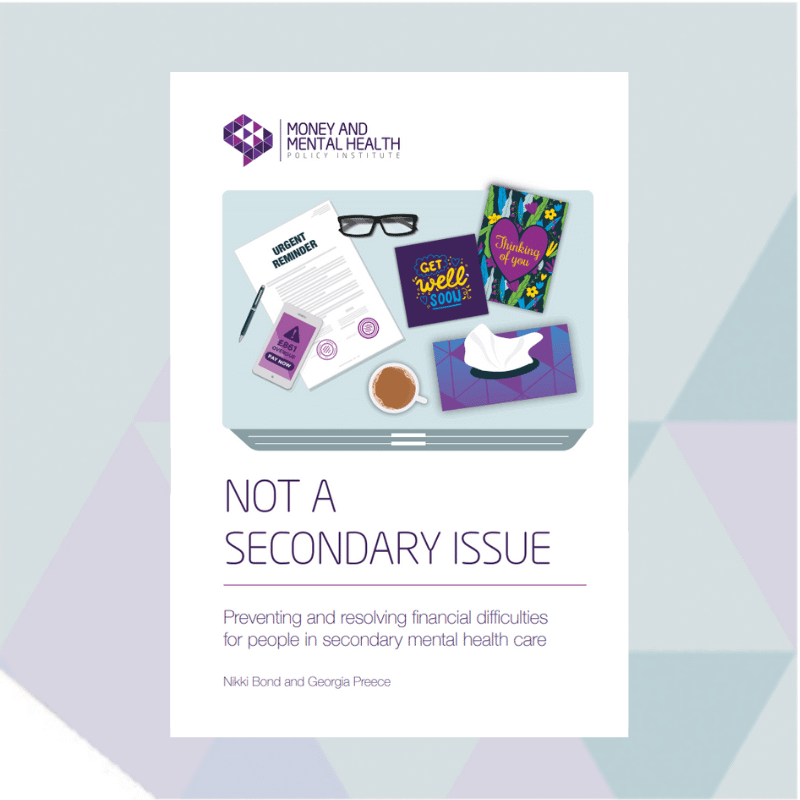Nikki Bond, Senior Research Officer and Georgia Preece, Research Assistant
Not a Secondary Issue: Preventing and resolving financial difficulties for people in secondary mental health care
This report examines the extent to which people in secondary mental health care – such as Community Mental Health Teams and psychiatric hospitals – face financial difficulty and how far these services sufficiently meet the financial needs of people in their care.
Our research indicates that:
- More than eight in ten (86%) of respondents experienced financial harm while under secondary mental health care – with seven in ten (72%) reporting that they struggled to pay for essentials, such as food and heating
- Eight in ten (81%) respondents found that their crisis or relapse prevention plan did not mention personal finance – with four in five (79%) feeling that help in managing their finances would have led to a better outcome
- Only half (53%) of respondents who had received treatment from Community Mental Health Teams had disclosed how their financial circumstances were impacting their mental health
Key recommendations:
The report makes a number of recommendations on how the government, funders and healthcare providers can prevent financial harm for people receiving secondary mental health care:
- The Department of Health and Social Care should automatically offer Mental Health Breathing Space to people detained in hospital due to their mental health, to ensure that more people experiencing a mental health crisis can benefit from this vital support
- The Money and Pensions Service should take steps to increase awareness of Mental Health Breathing Space among mental health nurses, social workers and health care assistants, enabling more people with acute mental health problems to access the programme
- The Department of Health and Social Care and NHS England should ensure that money worries are embedded in Care and Treatment plans, physical health checks and other support plans. This would see healthcare professionals routinely ask people about their financial position, and to signpost and refer people to support services
- The Money and Pensions Service and Health Education England should fund and deliver a money and mental health training module for health care practitioners, to support professionals in secondary mental health settings to ask about financial difficulties. This would ensure health professionals are better equipped to support people experiencing mental health problems with their finances
Read the full report here.
Thank you to the mental health charity Mind who supported us with the publication of this research and who we’ve worked with to provide research and analysis support to the Investing in Mental Health programme.

